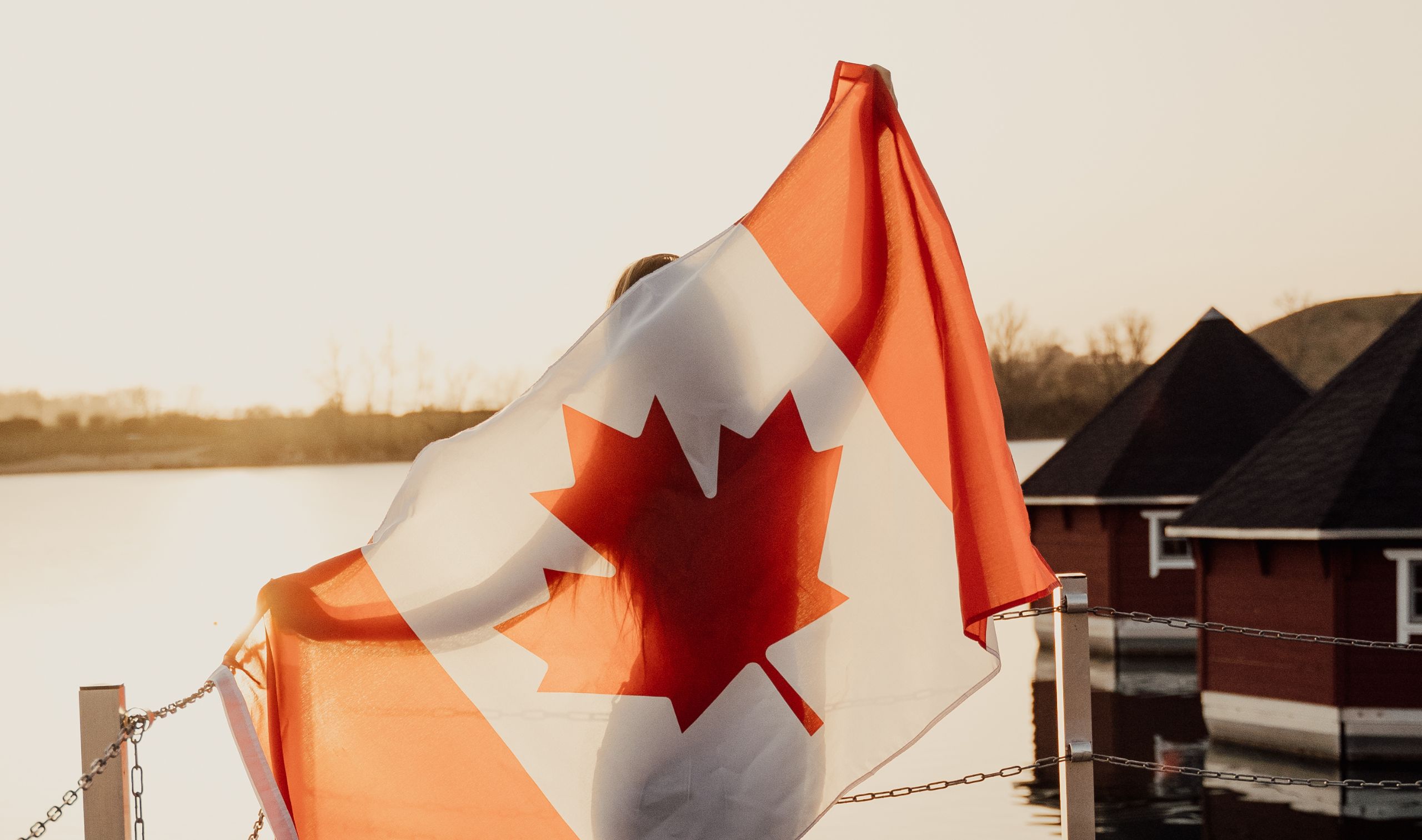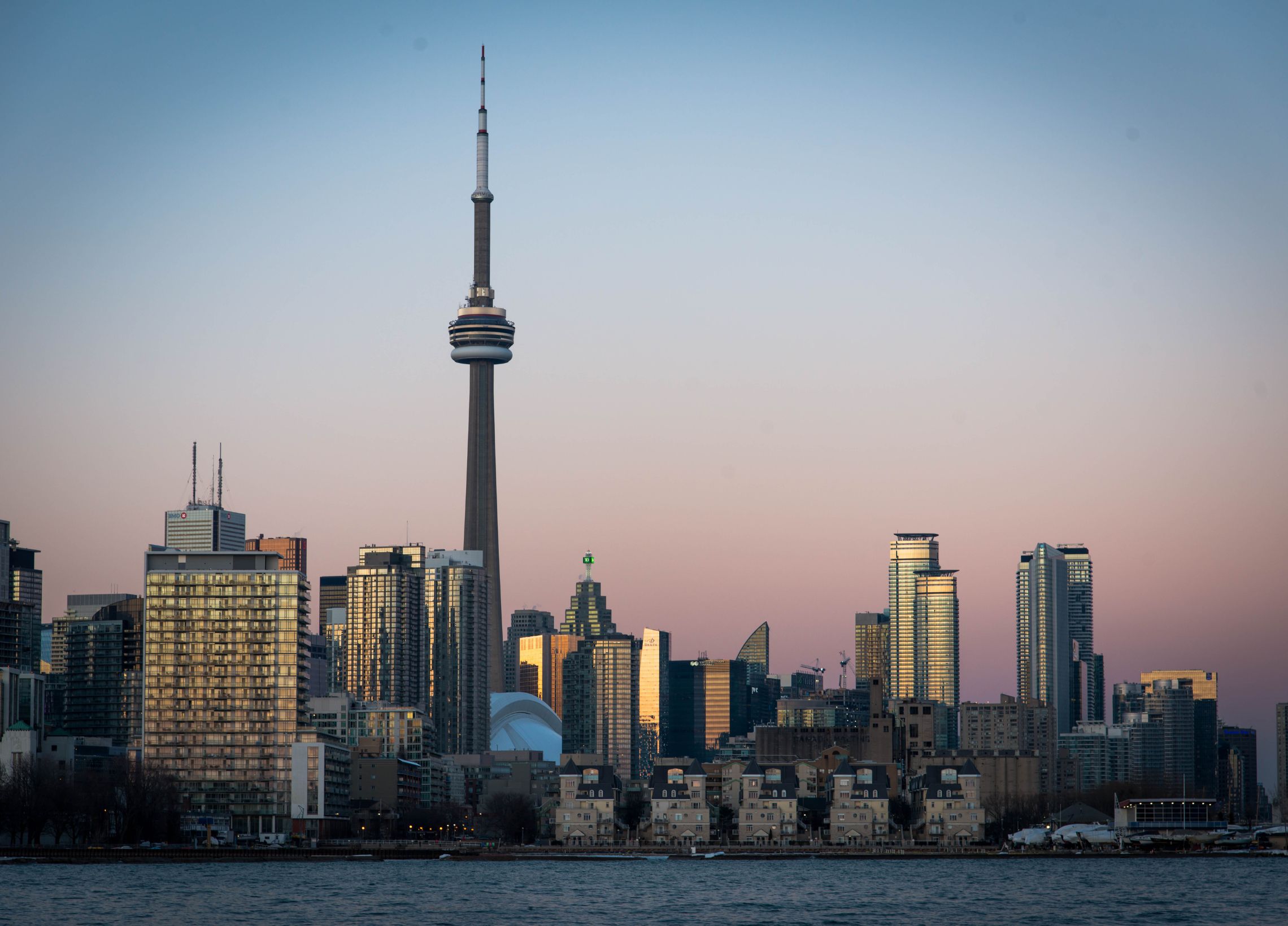Make Canada Home: Your Ultimate Guide to a New Life Up North
Discover the seamless path to Canada’s opportunity-rich landscape—where financial stability, cultural richness, and unparalleled quality of life await.

Written By: Sahar Faer
November 8, 2024 | 9 Minute Read

Dreaming of new horizons? Canada, with its blend of stunning landscapes, progressive cities, and welcoming communities, has become a top choice for Americans seeking fresh opportunities. Whether you’re looking for a safe haven, a vibrant cultural scene, or simply a new adventure, Canada has a lot to offer. With everything from world-class healthcare to a stable economy, it’s no wonder more people are making the move north.
Let’s dive into the essential steps to make this idea a reality. Here’s what you need to know about moving to Canada, so you can feel empowered to make an informed decision and take steps with confidence.

Understand Your Visa Options
Canada has multiple pathways for U.S. citizens looking to move, each with its own requirements. Whether you’re planning on staying temporarily or putting down roots, it’s essential to choose the right one.
EXPRESS ENTRY
This is ideal if you’re planning to stay long-term. Canada’s Express Entry program is based on a points system, and it rewards those with in-demand skills. If you’re a skilled worker, such as an engineer, teacher, or healthcare professional, this pathway may be your best bet.
WORK PERMITS
If you’re thinking of testing the waters before committing, a temporary work permit allows you to work in Canada for up to two years. Many Americans use this option as a trial run before applying for permanent residency.
STUDY PERMITS
Studying in Canada can be a smart path, especially if you’re considering higher education. Graduates from Canadian institutions often find it easier to secure work and stay in the country after completing their studies.

Faer Tip: Check the specific requirements for each option carefully. Canada’s immigration system values transparency and fairness, but it’s also competitive. Make sure you score the points you need by highlighting relevant skills and education.

Research the Cost of Living in Your Chosen City
Canada is diverse, and so are its cities. Before you start packing, take a close look at the cost of living in potential locations. Toronto and Vancouver, for instance, are known for high housing costs, but cities like Calgary, Halifax, and Ottawa offer a balance of city amenities and affordable living.
TORONTO & VANCOUVER
Expect a higher cost for housing and groceries here, but you’ll gain access to world-class dining, arts, and business networks.
CALGARY
Known for its lower taxes and affordable real estate, Calgary appeals to professionals in tech, oil, and engineering.
MONTREAL
For those interested in a European vibe, Montreal offers affordable rent, cultural richness, and a growing economy, though French language skills are often a plus.

Faer Tip: Use online resources like Numbeo to compare city costs for rent, groceries, utilities, and entertainment. This way, you can align your ideal lifestyle with your budget.

Explore Healthcare Options
Canada’s universal healthcare system is one of its most attractive features, especially for those who value affordable, quality care. As a permanent resident, you’ll have access to provincial healthcare, which covers most primary and emergency medical services. But if you’re on a temporary visa, you may need to arrange private health insurance.
BASIC COVERAGE
Once you qualify, you’ll have access to free primary healthcare services, including doctor visits, hospital stays, and essential surgeries.
PRIVATE HEALTH INSURANCE
Many Canadians supplement with private insurance for additional benefits like dental, vision, and prescription drugs. You can often arrange this through employers or as an individual plan.


Faer Tip: Research healthcare specifics for your chosen province since each region has its own coverage details and wait times. Knowing what’s included—and what isn’t—can help you decide if you want supplementary insurance.

Settle into Canadian Culture
Canada’s friendly reputation isn’t a myth. With a vibrant mix of cultures, languages, and lifestyles, you’ll find Canadians to be generally open, respectful, and supportive. Moving to Canada means embracing the national values of equality, tolerance, and inclusion, all of which form the backbone of the country’s social and political landscape.
Practical Tips to Help You Fit In:
LANGUAGE
Canada has two official languages—English and French. While English is predominant in most regions, learning a few phrases in French will help you feel at home, especially in Quebec.
COMMUNITY INVOLVEMENT
Join local groups, whether it’s a neighborhood association, a sports club, or a volunteer organization. Canadians value community involvement, and it’s an excellent way to make friends.
UNDERSTAND LOCAL CUSTOMS
Canadians are known for politeness and respect for personal space. Little things—like saying “sorry” when passing by someone or letting others off public transportation first—will go a long way.

Faer Tip: Don’t be shy about meeting new people. Canadians are warm and welcoming, so introducing yourself to neighbors and joining local activities can help you feel more connected and less like an outsider.

Plan Your Finances & Taxes
One key aspect of moving is ensuring you’re prepared financially, especially when it comes to taxes. Both the U.S. and Canada have distinct tax laws, and Americans living in Canada may need to file taxes in both countries.
OPEN A CANADIAN BANK ACCOUNT
Setting up a bank account in Canada is straightforward, and it’s a vital first step to managing your finances locally. Most major banks offer accounts specifically for newcomers, with special perks like no monthly fees for the first year.
UNDERSTAND CROSS-BORDER TAXES
The U.S. is one of the few countries that taxes its citizens on worldwide income, meaning you’ll likely still file with the IRS. Fortunately, Canada and the U.S. have a tax treaty to prevent double taxation, but it’s worth consulting a tax advisor for guidance.

Faer Tip: Consider working with a cross-border financial advisor if you plan to invest or have complex assets. They can help optimize your finances under both U.S. and Canadian tax laws.

Secure Housing
Whether renting or buying, securing a home in Canada’s competitive real estate market is a crucial step. Housing availability and prices vary widely across the country, so doing some homework is essential.
RENTING
Many newcomers start by renting to get a feel for the area before buying. Websites like Kijiji, PadMapper, and Realtor.ca can help you navigate the rental market.
BUYING
If you’re ready to invest, buying a property could be a great choice, especially in up-and-coming cities where prices are lower. Hiring a real estate agent familiar with Canadian property laws can make the process smoother.

Faer Tip: Landlords may ask for references or credit checks, so be prepared to provide these. Having a local co-signer or a healthy savings account can also help if you don’t yet have Canadian credit history.

Take the First Step Toward Your Canadian Dream
Moving to Canada might feel like a big leap, but with the right preparation, it can be the adventure of a lifetime. From visa applications and housing to learning about healthcare and culture, Canada offers a welcoming path for those seeking a new life.
If you’re excited about making Canada your new home, subscribe to our newsletter for more insights on Canadian real estate and lifestyle tips tailored for newcomers. The journey to Canada starts with small, confident steps, and we’re here to guide you every step of the way.
Have additional questions?
We’re here to help. Let’s talk.

The eligibility to move to Canada from the U.S. depends on various factors, including your immigration status, skills, and employment. Key pathways include Express Entry, Provincial Nominee Programs (PNP), and family sponsorships. Each pathway has specific criteria like language proficiency and work experience.
In 2024, some of the best ways to get permanent residency in Canada are through Express Entry and the Provincial Nominee Program. Express Entry targets skilled workers, while PNP allows provinces to select individuals based on local labor market needs.
Yes, you can bring pets with you when moving from the U.S. to Canada. Canada is pet-friendly, but you will need to follow specific importation guidelines for vaccines, microchipping, and health certificates.
The cost of living in Canada varies by province. Major cities like Toronto and Vancouver are more expensive, with housing and utilities typically consuming 35-50% of income. Taxes, healthcare, and public services also contribute to the overall cost.
Canada has a diverse job market, particularly in healthcare, STEM, trades, and agriculture. However, newcomers often face challenges in finding jobs that match their qualifications. Skilled workers have an advantage, especially in fields with high demand.
While Canada is bilingual, you are not required to speak both languages to immigrate. However, knowing French and English can improve your chances of securing a job and qualifying for immigration programs.
The timeline for moving to Canada can vary. For those applying through Express Entry, processing times are typically six months, but other pathways like PNP or family sponsorship can take longer. Planning and preparation are crucial.
Canada’s healthcare system is publicly funded, and all residents have access to healthcare through provincial programs. However, newcomers may need to wait for provincial health coverage or opt for private insurance during the waiting period.
Taxes in Canada are generally higher than in the U.S. and vary by province. The federal government imposes an income tax, while provinces have their own taxes. Canadians also pay sales taxes on most goods and services.
The immigration process can include multiple steps depending on the program you choose. Most applicants need to submit an online profile, undergo a background check, and provide proof of language proficiency and work experience. The process can take several months depending on the program.



